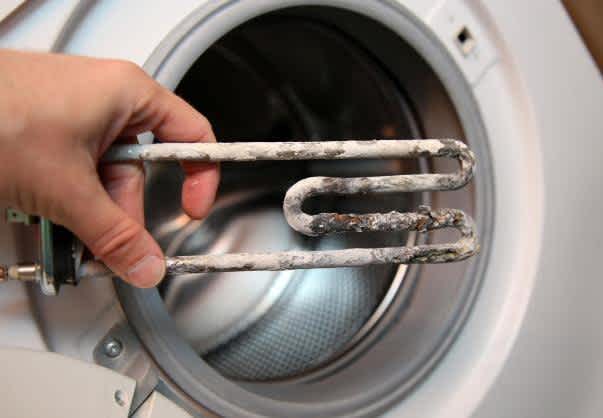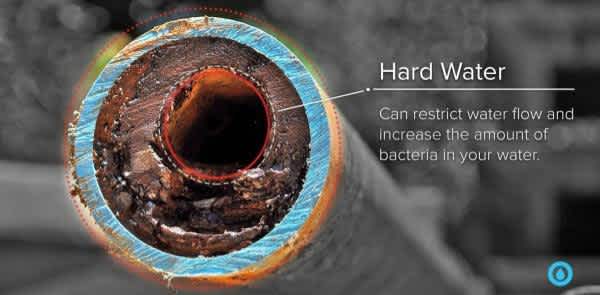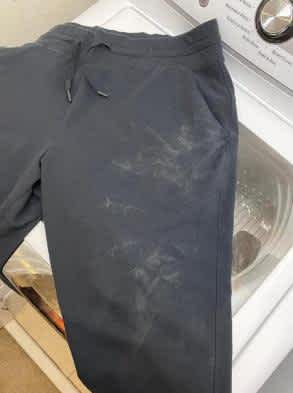When soap reacts with calcium and magnesium ions of hard/well water, scum is formed which restricts the soap’s ability to bubble or to make foam. That is why we don’t get foam in hard water.
So this blog deals with What is soft water and hard water and their behavior towards soap? Have you wondered that Soft water readily forms lather with soap but well water does not? Also, you can study here What is the hardness of water? And advantages and disadvantages of hard water and soft water. So yeah! here is what I found on what I experienced.
Water
Water(H2O) is essential for the functioning of all life forms that exist on earth. The scientific name for water is dihydrogen monoxide(H2O) which comprises two hydrogen atoms and one oxygen atom.
Types of water
Water is classified into two types:-

Soft water vs hard water
Hard Water
Soft Water
Let’s study it in detail.
Soft water:
Soft water readily forms lather with soap. Water containing sodium salts easily gives lather with soap and is considered soft water. This type of water is suitable for human use. Examples of soft water are rainwater and distilled water.
Advantages of soft water:
Soft water does not contain an excess of minerals. With the use of soft water, pipes and plumbing last longer because the pipes won’t become clogged by mineral deposits. Using soft water for washing clothes can be profitable, Less soap and detergent will be consumed. Cleansing in soft water removes spots and stains effortlessly.
Soft water is very safe for electrical appliances as it does not contain any harmful minerals.
Using soft water to bath or wash hair can be beneficial as it rinses away the shampoo or soap efficiently. The shampoo or soap does not stick to the scalp or skin if you use soft water. Doctors also recommend using soft water if someone is having skin problems(dry skin).
Disadvantages of soft water:
Soft water is very less consumable. Soft water is tasteless due to a lack of minerals. It is very safe to drink but regular consumption of soft water can be dangerous as an increase in sodium levels can lead to multiple health problems.
Many people use water softeners to soften the water supply in their houses. But the maintenance is very expensive.
Hard water (Well Water)
Hard water contains higher concentrations of minerals such as bicarbonates, chlorides, or sulphates of calcium and magnesium. The presence of these concentrated minerals makes the water hard.
Hard water contains bicarbonates:-
Ca(HCO3)2 Mg(HCO3)2
CaSO4 Mg(SO4)4
CaCl2 MgCl2
The noticeable signs of hard water:
Using Hard water gives a feeling of sticky coating on hands after washing them.
Using Hard water can leave stains on utensils that are deposits of calcium carbonate.
Using Hard water can leave white stains over clothes after washing.
So if you notice any of these signs at your home. This means you are consuming hard water.
Advantages of hard water:
Soft water is almost tasteless due to a lack of minerals. But hard water does have a better taste because of the presence of minerals. The intake of these minerals like Calcium and Magnesium through hard water may strengthen our bones and teeth. As we know, our bones and teeth are made up of calcium. So hard water intake can be beneficial. Hard water intake can fulfill our body’s demand for minerals.
Hard water can be helpful to check the lead poisoning of water pipes. Lead is poisonous. Water pipes are sometimes made up of lead material. The minerals present inside the hard water prevent the lead from dissolving into the water. In this way, hard water can prevent us from lead poisoning also.
Disadvantages of hard water:
Water systems that use groundwater as source trouble most with the water hardness. Since water moves through soil and rocks, it dissolves a small amount of naturally occurring minerals and carries them ahead. So in the areas where water is hard, industries might have to expend money to soften the hard water. Otherwise, hard water can damage their equipment.

EQUIPMENT DAMAGE
Hard water shortens the life of clothes and fabrics. And also hard water can have a bad impact on our hair and skin. Hard water can make the skin itchy and dry. Hair loss and frizzy hair can also be its consequence.
Long-term movement of hard water through pipes can result in clogging of pipes because hard water causes substantial damage. The mineral deposition onto the walls of pipes through hard water can result in a poor flow of water.

CLOGGING OF PIPES
The hardness of water is the concentration of dissolved salts of calcium and magnesium in the water and it can further be classified into two:
Temporary hardness:- The temporarily hardened water contains magnesium and calcium carbonates. The presence of these cations makes the water temporarily hard. This temporary hardness can be reduced by boiling the water or by adding lime. Soluble bicarbonates are transformed into insoluble carbonates by boiling the water. Then insoluble carbonate is extracted by filtration.
Permanent hardness:- The type of hardness is permanent. This hardness is difficult to be removed from the water because the method is expensive. Permanent hardness arises when the insoluble salts of magnesium and calcium are present as sulfides or chlorides in the water. Permanent hardness is called so because it can not be removed by boiling. Water is treated with washing soda to remove the hardness. Then, the hard water turns into soft water.
Action of soap in Soft Water:
Soaps are the most commonly used cleansing agent which removes the dirt from the clothes easily but why? Let’s find out. Soaps are water-soluble sodium salts and have negligible insoluble magnesium and calcium salts. Soaps readily form lather in soft water because sodium dissolves easily in it. And we get foam easily even in less water. Washing clothes or dishes in soft water is beneficial.
Action of soap in hard water:
As we know, Hard water contains calcium and magnesium ions. So when we apply soap, it reacts with calcium and magnesium ions of hard water to form an insoluble white precipitate called SCUM. Have you ever observed that washing clothes with soap in hard water do not give foam or bubbles?

STICKY SCUM OVER CLOTHES
Why don’t we get foam in hard water?
This is due to scum formation as Scum is a sticky white substance that sticks to the clothes and reduces the ability of soap to form bubbles. That is why we don’t get foam in hard water.
In hard water, scum formation restricts the cleansing ability of the soap. In this way, hard water can also ruin your laundry leaving white patches over clothes.
